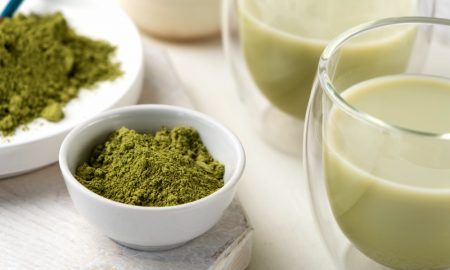
Stretch The Shelf Life Of Your Kitchen Essentials

If there is one thing the world has learned from the corona virus pandemic, it is never to take groceries for granted. While excessive stockpiling is unnecessary, many have come to realize that it is always useful to have some kitchen essentials on hand for a rainy day. But what about expiration dates, you ask? Here’s how you can stretch the shelf life of perishable staples.
Eggs

Papzi555/Shutterstock: Eggs
For starters, begin storing your eggs in your refrigerator. While most grocery stores display eggs at room temperature, stashing them in the fridge boosts their shelf life from 1-3 weeks to 5 weeks. The cold environment ensures that eggs remain at a consistent temperature, and keep them fresher for an extended period. However, it is essential to note that once an egg has been taken out of the refrigerator, it is only good for 2 hours before it becomes unusable.
Do you want to store them for longer? Crack the eggs into a container and store it in your freezer. This will extend their shelf life significantly, although you do need to thaw them. Unfortunately, even with precautions taken, sometimes, your eggs may no longer be safe for consumption. If the egg is cracked, discolored, has a powdery texture, or appears slimy, it’s best to throw it out.
Vegetables, Fruits, and Herbs

Olha Afanasieva/Shutterstock: Fresh vegetables and fruits
There is a widespread misconception that freezing fruits and vegetables detracts from their nutritional value. This myth has been debunked by professionals like Kajsa Ernestam, who works with the digital health app, Lifesum. Ernestam assures that as long as Produce is frozen before it becomes too ripe, it yields no harm.
Vegetables like corn, green beans, onions, spinach, and bell peppers can all be frozen. So can a variety of fruits, including berries and mangoes. Even avocados can be sliced up and stored at cold temperatures. Frozen fruits can be blended up into refreshing smoothies, or serve as healthy snacks when adequately thawed out.
A handy hack that will also save you time when it comes to cooking involves chopping up herbs and storing them in the freezer. They are ready-to-use when you need them. The same trick can be used with citrus fruits, which can be stored in ice cube trays. These cubes of fruit juice can be added to water, smoothies, or even sauces to add an extra dimension of flavor.
Dairy Products

pilipphoto/Shutterstock: Dairy Products
Dairy products are notorious for having tight expiration dates. They are not usually frozen, as this drastically alters their consistency. While this is true, stored milk, cheese, and yogurt can be safely used in recipes where their consistency does not matter. In fact, freezing dairy products can extend their shelf life to almost three months.
Milk and cream can also be preserved in ice cube trays or similar containers. They can be defrosted before use or added directly to sauces and soups. With cheese, precautions need to be taken to prevent freezer burn. Wrapping cheese tightly will allow it to be stored safely for up to two months.
Yeast
Unopened yeast can last in cupboards or refrigerators for a long time. Once opened, it should be stored in a cool, dry place. Popping yeast in your freezer or fridge can allow it to last for around six months.
Unsure whether old yeast is safe to consume? Conduct a simple test by mixing a teaspoon of it with a teaspoon of sugar in a measuring cup of warm water. If foam rises to the 1 cup mark, the yeast is still active and can be used.
These tips and tricks can save you time, money, and trips to the grocery store. However, when it comes to deciding whether or not a product is safe for consumption, it is important to use your own discretion. A quick Google search can advise you on what your product may look like when spoilt and could save you many a tummy ache. Happy shopping!
More in Medicare
-
`
Are Chanel and Johnny leaving Days of Our Lives? Here Are the Facts
Fans of Days of Our Lives have been on the edge of their seats, wondering if Chanel and Johnny are leaving...
August 20, 2024 -
`
How Much Does Massage Business Make? A Profitability Breakdown
Curious about how much does massage business make? The massage spa industry in the United States is a significant sector, with...
August 14, 2024 -
`
How to Stay Healthy During Cold and Flu Season
Cold and flu season can be a daunting time, with the risk of illness looming large. Missing work, classes, or social...
August 9, 2024 -
`
Which US Virgin Island Is the Best for Your Dream Vacation
Choosing the perfect island for your dream vacation can be challenging, but each of the U.S. Virgin Islands offers something unique...
July 31, 2024 -
`
Is Taylor Swift ‘Officially’ Engaged to Travis Kelce?
Is Taylor Swift engaged to Travis Kelce? This question has been buzzing around fans lately. Well, their relationship has been nothing...
July 23, 2024 -
`
How to Become a Property Manager in 6 Easy Steps
So, you are wondering how to become a property manager? If you love real estate and have a knack for organization,...
July 17, 2024 -
`
Everything You Need to Know About Aerobic Threshold
When you start to exercise, you may have wondered, What is an aerobic threshold? This term is key to understanding how...
July 12, 2024 -
`
What Is the Best Time to Visit Yellowstone?
May is the Best Time to Visit Yellowstone First up: May is often considered one of the best times to visit...
July 2, 2024 -
`
Jesse Plemons Opens Up About Being Matt Damon’s Look-Alike Actor
In the realm of Hollywood, resemblances between actors often become a point of intrigue and conversation. For Jesse Plemons, his ongoing...
June 25, 2024















You must be logged in to post a comment Login